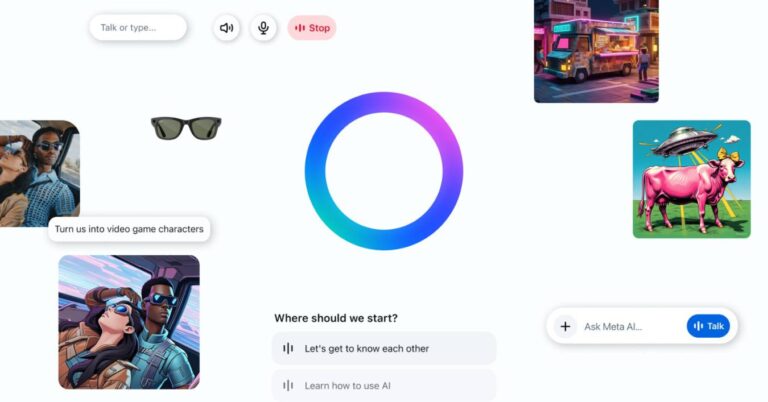Meta backs Musk’s legal battle against OpenAI, petitioning USA California Attorney to intervene in OpenAI’s proposed shift from a non-profit to a for-profit organization. Meta argues that the move undermines the core principles of non-profit entities and could set a problematic precedent in Silicon Valley, affecting the ethical standards of future startups.

Meta backs Musk’s legal battle against OpenAI – Key Points
Meta’s Legal Challenge to OpenAI’s Transition:
- Meta backs Musk’s legal battle against OpenAI, claiming that OpenAI’s reorganization from a non-profit foundation to a for-profit entity is a strategic exploitation of its charitable status.
- The company urges California’s Attorney General to intervene, alleging that OpenAI may have misused its non-profit status to secure tax advantages and donations, only to shift to a for-profit model once its technology reached commercial viability.
- Meta calls for a thorough review of OpenAI’s restructuring process to ensure that it has not improperly depleted the non-profit’s assets, potentially violating legal protections associated with charitable entities.
The Stakes Behind OpenAI’s Shift:
- OpenAI’s transition is primarily driven by financial pressures, as the organization is under significant obligation to return billions of dollars in investments if the for-profit restructuring is not finalized within two years.
- Meta’s legal challenge focuses on the potential broader impact on the startup ecosystem, fearing that it may set a dangerous precedent where future companies use the non-profit status to gain initial funding and tax advantages, only to transition to for-profit once they become commercially viable.
- This would erode public trust in non-profit structures and potentially distort the competitive landscape for tech startups.
Meta’s Strategic Alignment with Elon Musk:
- Although Meta and Elon Musk have had a complicated history, Meta has expressed support for Musk’s legal battle against OpenAI.
- Musk, who played a pivotal role in OpenAI’s early stages, has criticized the organization for diverging from its original mission of developing AI for the public good.
- Meta has argued that Musk and Shivon Zilis, both early OpenAI contributors, are well-positioned to represent Californian interests in challenging OpenAI’s for-profit transition.
OpenAI’s Defense of the Restructuring:
- OpenAI’s board chair, Bret Taylor, has defended the transition as a necessary step to fulfill the organization’s fiduciary obligations and to continue its mission of ensuring that Artificial General Intelligence (AGI) benefits all of humanity.
- Taylor has emphasized that the original non-profit foundation will remain in place, with a retained stake in the newly formed for-profit company, aiming to balance financial sustainability with its mission.
- OpenAI argues that without this transition, it would be difficult to compete with other tech giants and attract the necessary funding for continued advancements in AGI development.
Potential Industry-Wide Impact on Silicon Valley Startups:
- Meta warns that if OpenAI is allowed to transition into a for-profit organization without regulatory scrutiny, it could trigger a shift in how Silicon Valley startups approach non-profit status.
- The concern is that more tech companies could adopt a “bait-and-switch” strategy, using non-profit status to attract donations and tax breaks, only to convert to for-profit once they gain traction.
- Meta argues that this could distort the ethical foundation of Silicon Valley startups, create unfair competitive advantages, and erode trust in charitable foundations, thereby potentially damaging the integrity of the tech industry as a whole.
- Meta’s Own Competitive Positioning in AI:
- Meta’s legal actions align with its growing ambition to lead the generative AI space. The company has been ramping up its own AI initiatives, including Meta AI, which aims to outpace OpenAI’s ChatGPT and develop advanced AGI systems.
- By challenging OpenAI’s for-profit move, Meta may also be positioning itself as a dominant player in the AI field, capitalizing on the ethical and regulatory debates surrounding AI development and deployment.
Why This Matters:
Meta backs Musk’s legal battle against OpenAI, and this intervention highlights the immense pressure in the rapidly expanding AI sector, where major players are grappling with not only technological advancements but also the ethical and legal ramifications of how AI is developed, funded, and commercialized. If OpenAI’s for-profit transition proceeds without legal hurdles, it could have far-reaching implications for how future startups structure their businesses and interact with charitable frameworks.
Explore the vital role of AI chips in driving the AI revolution, from semiconductors to processors: key players, market dynamics, and future implications.
Read a comprehensive monthly roundup of the latest AI news!







